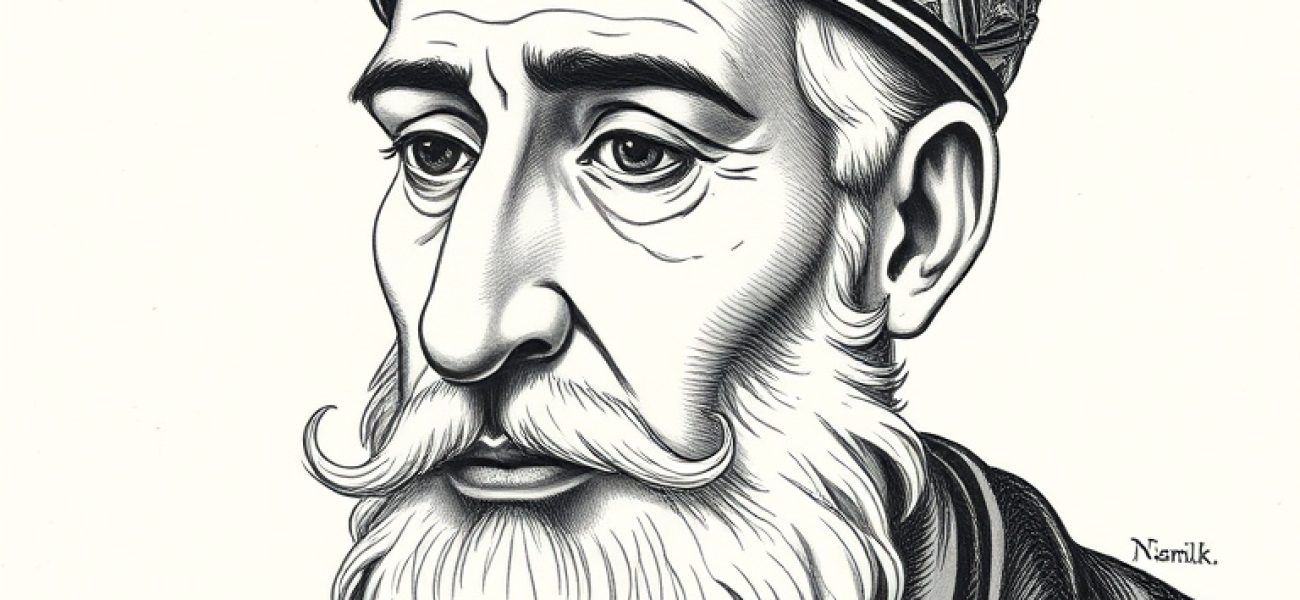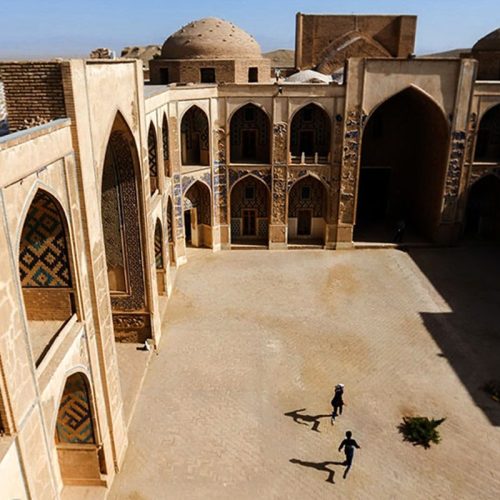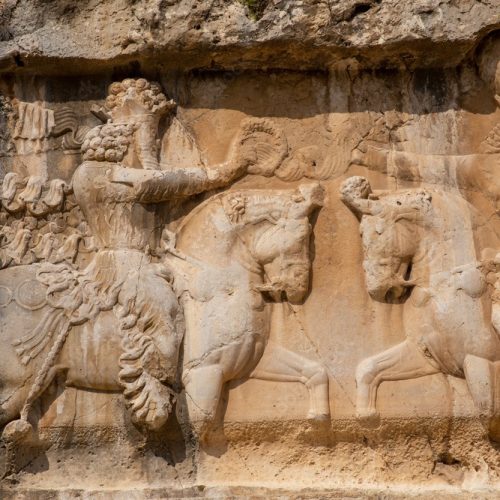A Scholarly Exploration of a Pivotal Visionary in Islamic Governance
Prelude to Greatness: Early Life and the Winds of Destiny
In the verdant landscapes of Khorasan, where the whispers of history dance through ancient plains, emerged a figure whose intellect would reshape the very foundations of Islamic statecraft. Abū ʿAlī al-Ḥasan ibn ʿAlī Tūsī, known to posterity as Nizam al-Mulk, was not merely a bureaucrat or a vizier, but a luminous constellation in the vast firmament of medieval Islamic civilization.
The year of his birth, 1018 CE, marked a moment of profound cultural and political transition in the Islamic world. Tus, his birthplace, was no ordinary town but a crucible of intellectual ferment—a place where the echoes of ancient Khorasani wisdom intertwined with the emerging dynamism of Turkic political power. Here, in the shadow of the venerable mount Binalud, young Ḥasan’s destiny began to take shape, like a delicate manuscript waiting to be inscribed by the hands of providence.
His lineage was not one of mere provincial nobility, but of those learned administrators who understood that true power resided in the realm of knowledge and systematic governance. His father, ʿAlī ibn Ishaq, was a respected local official whose administrative acumen was matched only by his commitment to scholarly pursuits. The household of Ibn Ishaq was a microcosm of the intellectual tradition of Khorasan—a space where theological discourse mingled with administrative pragmatism, where the art of governance was studied with the same reverence as divine revelation.
From his earliest years, young Ḥasan displayed an extraordinary capacity for observation and analysis. The bustling marketplaces of Tus, the scholarly gatherings in local madrasas, the intricate negotiations of local officials—all became his classroom. His father recognized in him not just an heir, but a potential transformative intellect. Where other fathers might have seen a child, ʿAlī ibn Ishaq perceived a future architect of empires.
The educational journey of Nizam al-Mulk was anything but conventional. Traditional Islamic learning was not merely about memorization but about deep comprehension, critical analysis, and the ability to synthesize complex ideas. He studied the classical texts of Islamic jurisprudence, Persian administrative traditions, and the philosophical works that had made Khorasan a beacon of intellectual innovation. The works of philosophers like Avicenna, who hailed from the same region, were not distant abstractions but living intellectual traditions that shaped his worldview.
Languages were his first instruments of power. Beyond his native Persian, he mastered Arabic—the lingua franca of scholarship—with a sophistication that would later enable him to communicate across diverse cultural and political landscapes. His linguistic abilities were not mere academic achievements but diplomatic tools that would prove crucial in his future roles.
The political landscape of his youth was turbulent and transformative. The declining power of the Ghaznavids, the rising might of the Seljuk Turks, the complex interactions between Persian administrative traditions and Turkic martial culture—all of these were not distant political abstractions but the very air he breathed. Young Ḥasan was simultaneously a product of this complex world and a potential agent of its transformation.
Religious scholarship played a crucial role in his formation. Unlike many administrators who saw religion as a mere political instrument, Nizam al-Mulk understood the profound philosophical and ethical dimensions of Islamic thought. The Sunni theological traditions, particularly the Shafi’i school of jurisprudence, provided him with a comprehensive framework of understanding governance not just as a political practice, but as a sacred trust.
His early mentors were not just teachers but visionaries who saw in him the potential to bridge different intellectual and cultural traditions. They nurtured in him a vision of governance that transcended narrow sectarian or tribal considerations—a holistic approach that would become his most significant contribution to Islamic political thought.
By the time he reached early adulthood, Nizam al-Mulk was no longer just the son of a provincial administrator. He had become a sophisticated intellect, a potential bridge between the rich Persian administrative traditions and the emerging Turkic political order. The winds of destiny were not merely blowing around him; they were channeling through him, preparing him for a role that would reshape the very contours of Islamic civilization.
Service to the Ghaznavids: The Crucible of Administrative Brilliance
The Ghaznavid period represented a crucial transformative moment in the administrative and cultural landscape of Eastern Islamic world. For Nizam al-Mulk, this was not merely a period of service, but a profound educational odyssey that would forge the administrative philosophy of a future imperial architect.
The Ghaznavid Empire, at its zenith, was a complex political organism stretching from modern-day Afghanistan to parts of India, a vast territorial expanse that demanded unprecedented administrative sophistication. Young Ḥasan entered this intricate world not as a mere bureaucratic apprentice, but as a keen observer and rapid learner of imperial governance.
His initial roles were deliberately modest, a strategic positioning that allowed him to comprehend the intricate mechanisms of imperial administration from the ground up. Unlike many of his contemporaries who sought immediate prominence, Nizam al-Mulk understood that true administrative mastery emerged from a comprehensive understanding of systemic intricacies.
In the chancelleries and diwan offices of the Ghaznavid court, he developed a remarkable ability to navigate complex bureaucratic landscapes. The Persian administrative tradition, with its centuries-old sophisticated record-keeping and procedural nuances, became his primary school of governance. Here, he learned the art of financial management, diplomatic correspondence, and the delicate balance between central authority and provincial autonomy.
The Ghaznavid bureaucracy was renowned for its meticulous documentation and systematic approach to governance. Ḥasan absorbed these methodologies with an almost scientific precision. He studied how imperial resources were allocated, how tax systems functioned, and how administrative decisions were translated into practical governance. Each document, each financial record became a text from which he would extract profound administrative wisdom.
Diplomatic missions formed a crucial part of his early career. The Ghaznavid Empire’s complex relationships with neighboring kingdoms—including various Turkic principalities, the Buyid remnants, and the emerging Seljuk power—required nuanced diplomatic skills. Nizam al-Mulk demonstrated an extraordinary capacity for negotiation, understanding that true diplomatic success lay not in grandiloquent speeches but in subtle understanding of cultural and political motivations.
His financial acumen became particularly noteworthy during this period. In an era where imperial stability was directly linked to economic management, he developed sophisticated methods of revenue collection and resource allocation. He understood that administrative efficiency was not about rigid control but about creating flexible systems that could adapt to changing political landscapes.
Religious scholarship and administrative practice were not separate domains for Nizam al-Mulk, but deeply interconnected spheres of human endeavor. The Ghaznavid court, with its complex mixture of Turkish military leadership and Persian administrative traditions, provided him a unique laboratory for understanding how religious principles could be integrated into practical governance.
The intellectual environment of the Ghaznavid period was particularly stimulating. Scholars, poets, and administrators moved fluidly between different courts and principalities. Nizam al-Mulk was not just an observer of this intellectual ecosystem but an active participant. He engaged with scholars, absorbed diverse perspectives, and began developing his comprehensive vision of governance that would later revolutionize the Seljuk administration.
By carefully observing the strengths and limitations of the Ghaznavid administrative model, he was simultaneously preparing himself for future opportunities. The eventual decline of Ghaznavid power was not a moment of despair for him, but an opportunity for transformation. Where others saw institutional collapse, he perceived the potential for radical administrative reconstruction.
His reputation during the Ghaznavid period was not that of a revolutionary, but of a deeply reliable and extraordinarily competent administrator. Colleagues and superiors recognized in him a rare combination of intellectual sophistication and practical administrative skills. He was becoming, even then, an indispensable administrative talent whose value transcended immediate political configurations.
The years of Ghaznavid service were more than mere professional apprenticeship—they were a profound philosophical and practical education in the art of governance. Every challenge, every diplomatic mission, every administrative task was gradually sculpting the administrative philosophy that would later transform the Seljuk Empire.
When the moment of transition arrived—his move from Ghaznavid to Seljuk service—Nizam al-Mulk was not merely changing employers. He was prepared to implement a comprehensive administrative vision that had been carefully cultivated through years of patient observation, learning, and strategic preparation.
The Seljuk Transformation: A Vizier’s Ascendance
The transition to Seljuk service marked a pivotal moment in Nizam al-Mulk’s extraordinary career. Under the patronage of Tughril Beg and subsequently Alp Arslan, he would transform from a provincial administrator to the de facto architect of one of history’s most significant Islamic empires.
His appointment as vizier was not a mere bureaucratic assignment but a revolutionary moment in Islamic governance. Nizam al-Mulk brought with him a comprehensive vision of statecraft that transcended the narrow tribal politics of his contemporaries. He introduced systematic administrative reforms that would become legendary, creating a centralized bureaucratic system that could effectively manage a vast, diverse empire.
The Reign of Tughril and Alp Arslan: Foundational Years
During the reigns of Tughril Beg and Alp Arslan, Nizam al-Mulk was more than a vizier—he was the intellectual spine of the emerging Seljuk state. He understood that imperial strength was not merely achieved through military conquest but through sophisticated administrative infrastructure.
His famous Siyāsatnāma (Book of Government) emerged during this period, a profound treatise that remains a seminal work of political philosophy. In this extraordinary text, he outlined principles of governance that blended Islamic ethics with pragmatic administrative strategies, creating a blueprint for just and effective rule.
Malik Shah’s Golden Era: The Apex of Nizam al-Mulk’s Influence
The reign of Malik Shah represented the zenith of Nizam al-Mulk’s influence. Under his guidance, the Seljuk Empire became a beacon of cultural, scientific, and administrative excellence. He established the renowned Nizamiyya madrasas, educational institutions that would revolutionize Islamic scholarship and become models of learning throughout the Muslim world.
These madrasas were not merely educational institutions but profound cultural statements. They represented a vision of Islam that celebrated intellectual inquiry, rational thought, and systematic knowledge acquisition. From Baghdad to Nishapur, these centers of learning became lighthouses of civilization, attracting scholars from diverse backgrounds.
Works and Intellectual Legacy
Nizam al-Mulk was not just an administrator but a profound intellectual whose works transcended the immediate political context. The Siyāsatnāma stands as his most enduring intellectual monument—a text that dissected the principles of governance with surgical precision and philosophical depth.
In this extraordinary work, he explored themes of justice, administrative ethics, and the responsibilities of rulers with a nuance that was centuries ahead of his time. He argued that true leadership was a sacred trust, requiring not just political acumen but moral excellence.
The Tragic Demise: A Visionary Silenced
The assassination of Nizam al-Mulk in 1092 CE was not merely a personal tragedy but a profound moment of historical rupture. Killed by an Ismaili assassin near Baghdad, his death represented the vulnerabilities inherent in even the most sophisticated political systems.
Yet, his assassination could not diminish the monumental transformations he had initiated. The administrative and educational infrastructures he had created would outlive him by centuries, a testament to the enduring power of visionary governance.
Eternal Legacy: Beyond Time and Circumstance
Nizam al-Mulk transcended the limitations of his historical moment. He was a philosopher-administrator who understood that true political power emerged from the synthesis of intellectual sophistication and practical governance.
His legacy is not confined to the Seljuk period but resonates through centuries of Islamic administrative thought. He represented a model of leadership that prioritized knowledge, ethical governance, and institutional development over mere military expansion.
A Constellation in the Firmament of History
In the grand narrative of Islamic civilization, Nizam al-Mulk stands as a luminous beacon—a scholar, administrator, and visionary whose contributions extended far beyond the immediate political landscape of the 11th century.
His life teaches us that true power is not about conquest or domination, but about creating systems that nurture human potential, celebrate intellectual diversity, and aspire towards justice and knowledge.
As the winds of history continue to whisper through the corridors of time, the name of Nizam al-Mulk remains etched not just in the annals of the Seljuk Empire, but in the collective memory of a civilization that has always celebrated wisdom above all else.




